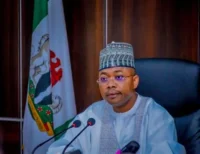By Chinenye Anuforo
Nigeria’s pioneering broadband mapping framework has received strong endorsement from the West Africa Telecommunications Regulators Association (WATRA), which described it as a model for driving inclusive digital transformation across the region.
The commendation came at the International Telecommunication Union’s (ITU) Africa Broadband Mapping (BBMaps) National event in Abuja, where global and regional stakeholders highlighted Nigeria’s leadership in data-driven broadband planning.
Aliyu Yusuf Aboki, Executive Secretary of WATRA, said Nigeria’s transparent approach to broadband mapping represents a benchmark for West Africa. He stressed that the initiative goes beyond infrastructure planning, positioning connectivity as a foundation for economic growth.
“Nigeria’s robust and transparent broadband mapping system stands as a model for the West African region. Through data-driven policymaking, we can close connectivity gaps and lay the groundwork for an inclusive digital economy,” Aboki declared.
The Abuja event marked a milestone in the Africa-BB-Maps initiative, a four-year programme funded by the European Union to harmonize broadband mapping systems in eleven Sub-Saharan African countries. The project aims to accelerate investment, enable smart regulation, and support the integration of regional digital markets.
The Nigerian Communications Commission (NCC), led by its Executive Vice Chairman, Dr. Aminu Maida, was praised for designing a broadband mapping framework that aligns with international best practice. Delegates from ITU, ECOWAS, and the EU described Nigeria’s system as a blueprint for cross-border digital infrastructure planning.
Stakeholders at the event also called for the creation of a National Broadband Mapping Task Force, chaired by the NCC, to oversee data standards, governance, and interoperability with regional systems.
WATRA’s Principal Manager for Partnerships, Mr. Ruffus Samuel, emphasized that harmonized broadband mapping is critical to building a resilient digital ecosystem in West Africa. He noted that mapping provides the foundation for smart regulation and greater private-sector investment in critical infrastructure.
WATRA pledged to deepen collaboration with ITU, NCC, and development partners to ensure broadband mapping delivers tangible benefits for citizens and businesses across its 16 member states.
The Africa-BB-Maps project also connects to wider strategies such as the Africa–Europe Digital Regulators Partnership and the EU Global Gateway Strategy, both of which prioritize sustainable, cross-border digital growth.
Aboki made it clear that broadband mapping is not just technical work, it is a strategic lever for Africa’s economic transformation.
“This initiative is more than mappingit’s about enabling investment, expanding opportunity, and achieving our collective digital aspirations,” he said.
With its broadband mapping framework now serving as a continental benchmark, Nigeria is positioning itself not just as a participant in Africa’s digital transformation, but as a driver of the region’s connected future.


















Leave a comment